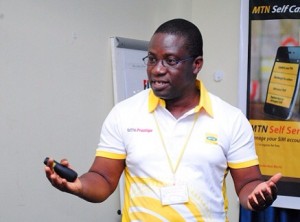Acting CEO of the Ghana Chamber of Telecommunications, Derek Laryea is calling on government to start treating telecoms as utility services, and telecoms infrastructure as national security equipment.
He believes that way, the notion that telecom operators are purely commercial entities, which must be burdened with all kinds of taxes, charges and levies would change and the accruing benefit would go to the country.
Derek Laryea was speaking at the maiden industry Stakeholder Dialogue Series organized by the Network of Communication Reporters (NCR) under the theme “Moving from Service Quality to Service Excellence”.
The forum, sponsored by MTN Ghana, was to discuss the deteriorating telecom quality of service and find ways of addressing them from the telcos, regulator and customer perspectives.
Taxes, levies, charges
Derek Laryea, who spoke for the telcos, noted that water and electricity were rightfully treated as essential utility services and thus the operators of those services are not burdened with levies and charges when they install infrastructure across the country to offer services.
“But all district, metropolitan and municipal assemblies and other government agencies slap significant and numerous charges and levies on telcos when we lay our infrastructure to spread service across the country,” he said.
Derek Laryea also noted that even when the telco had paid for, and been granted the right of way to install their infrastructure, some individuals are able to prevent the telco from doing so with excuses that it is a nuisance to them.
“We often come up against residents of communities who simply refuse to allow us to dig the ground and lay our fibre to provide them better service and yet the same people will complain of bad services and we get fined for it eventually,” he said.
Derek Laryea also noted that very often, road contractors compete with telcos for right of way, such that when telcos have laid their fibre and cable, road contractors use their excavators to cut the fibre and cable with careless abandon.
He said to the extent that telecoms has become an essential service to all sectors and all facets of life, it is important for the local government institutions and state agencies to see and treat it as such because its growth has a multiplier effect.
Fines
The Telecoms Chamber Acting CEO noted that whereas those who run the other utilities like water and electricity tend to get away with failures that have significant implications for the public and businesses, it would appear that telcos are not spared even for the slightest failures.
Derek Laryea said till date telcos continue to pay numerous taxes plus regulatory fines for network failures, which hamper investment into improving the network, and that is not good for the public.
“Besides, when we even want to mount towers and other infrastructure to improve service, the very people who demand for quality of service refuse to host our towers with unproven claims that towers cause cancer, malaria and other diseases,” he lamented.
National security
Derek Laryea also thinks that to the extent that telecoms platforms across the country carry some vital data about citizens, companies and others, it has become imperative for telecoms equipment to be treated as national security equipment and be protected as such.
“The rate at which people cut our fibre and cable, steal our fuel and batteries and tamper with our infrastructure pose a threat to all sectors of the country and that demands national security attention in the interest of the public,” he said.

Senior Manager for Customer Planning and Enablement at MTN, Lawrence Akosen said MTN prefers to focus on providing quality of experience, but that could be hampered by a number of factors beyond the network service provider.
He mentioned that a customer’s own handset and even location could be an impediment to quality his experience, saying that while some fake device make it difficult for the telco to even locate the customer and assist him, some high-end devices are also programmed to consume significant data even when not in use.
Lawrence Akosen therefore urged customers to make it a point to study the devices they use and also to make use of the self care services on MTN’s website to seek assistance instead of trouping to the MTN shops for answers.
Customers

Chairman of the forum, Nana Kwaku Dei I, Nkosuohene of Pakroh said to the extent that telcos remain private commercial entities they would be strictly required to meet the expectations of customers and they must deliver on their promise.
“The fact is telcos are private commercials entities making money so every regulatory institution would always demand regulatory fees and customers would demand the service they paid for and not excuses,” he said.
Nana Dei, known in private life as Ransford Tetteh, Editor of the Daily Graphic expressed the hope the NCR a Dialogue Series would serve as a platform for more of such engagements and feedback to ensure better service.
Treat telcos as utility service, national security – Telecoms Chamber
-

Audio By Carbonatix
